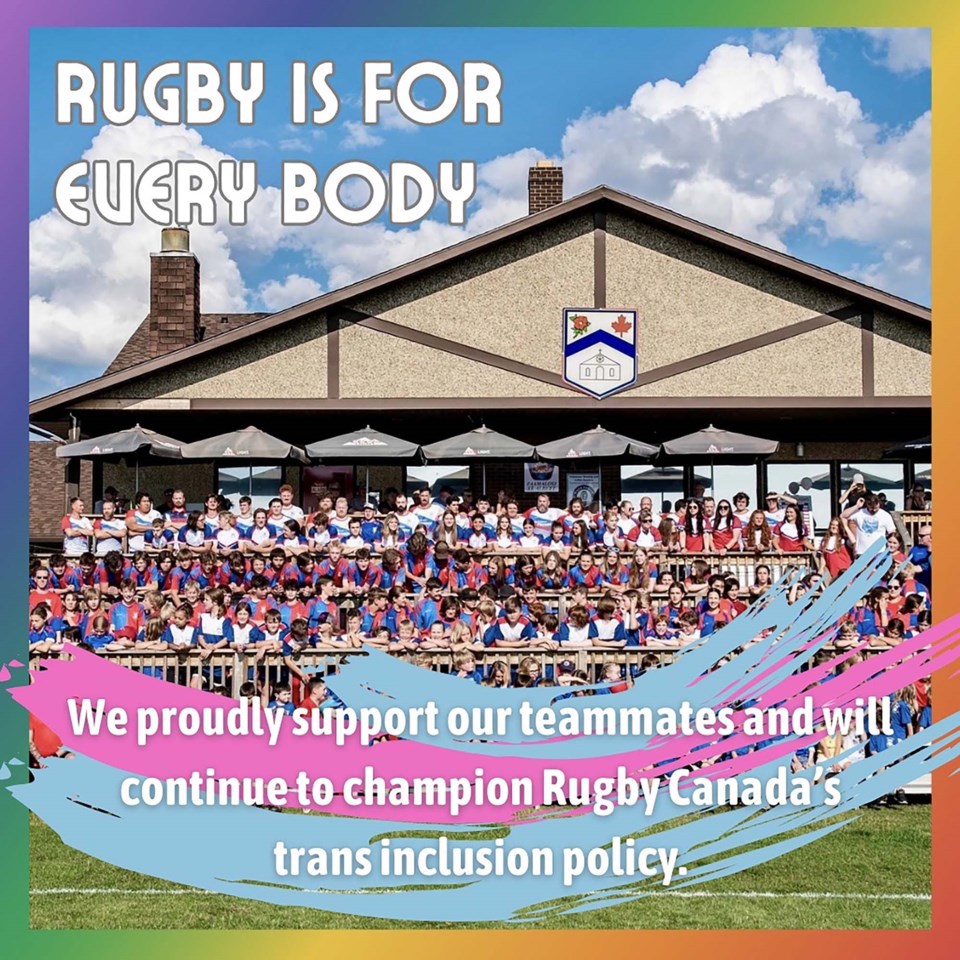Leaders of two major St. Albert sports clubs say they’re committed to inclusion as they wait for direction on how a new provincial law restricting transgender girls from participating in female sports divisions will affect local athletes.
The Government of Alberta's Fairness and Safety in Sport Act, which comes into force on Sept. 1, 2025, bans transgender girls from competing in amateur female sports categories. It applies to athletes aged 12 and older and mandates that participation in female leagues and competitions be limited to individuals whose sex at birth is female.
"When Albertans participate in the sports they love, they should be able to do so on a level playing field," Tourism and Sport Minister Andrew Boitchenko said in a press release. "No athlete should have an unfair advantage, and no athlete should have to put themselves at risk of harm to participate."
The new regulations require athletes or their guardians to confirm eligibility in writing when registering for female-only sports. If someone disputes an athlete's eligibility, a formal complaint can be submitted to the sport's governing board, which will then require the athlete to provide a birth registration document.
Athletes may continue to participate in female divisions while a challenge is under review. However, if found ineligible, they will be removed from the female-only division.
However, critics of the bill say the provincial government is creating a problem that doesn't exist.
"Trans girls are not the problem in fairness in sport," said Marni Panas, a Canadian certified inclusion professional. "They [girls] need access to ice time that privileges men's hockey. They have to have [the same] resources and finances that privilege men and boys sports. That's how you deal with fairness in sports."
Panas warned the bill could also lead to harmful scrutiny of girls who excel at their sport.
"It harms all girls," she said. "Any girl who's too good at her sport could be subject to having to prove her sex at birth. Any time we police girls' bodies and what they should look like and how they should act, and how well or not well they should perform a sport harms all girls. It does not protect them."
Alastair Lillico, vice-president of the St. Albert Rugby Football Club, said the club has always prioritized inclusivity and will continue to do so.
When asked about the section of the bill that allows people to report athletes they believe may be transgender, Lillico said, "I think in terms of reporting, that's not something that we're going to advocate for. We're inclusive, we're not trying to stop anyone from playing a sport or trying out something new."
Chris Spaidal, executive director of the St. Albert Soccer Association, said his club supports inclusion and has concerns about added barriers.
"We're all for being as inclusive as possible," he said. "But when there are all these layers in front of people, it becomes very challenging to be as inclusive as we desire to be."
Spaidal said it's unclear how the bill will affect operations but said it could affect registration numbers.
"It might potentially impact programs we operate, like numbers to fill out particular programs," he said. "We want to always make participation in our sport as locally attainable as possible for those who desire to join us."
Panas said there aren't many trans athletes in Alberta.
"There are so few [trans children] in society," said Panas. "They just want to play the sport that they love, for all the same reasons that any other child wants to."
Lillico echoed this, saying he isn't aware of many trans athletes and that rugby is an inclusive sport.
"Rugby is for everyone, no matter their background. So that's truly something we believe in as a club," said Lillico. "So we really just want to emphasize that, you know, rugby is for everyone."
Both the St. Albert Soccer Association and the St. Albert Rugby Football Club say they're waiting for direction from their provincial governing bodies on how this bill will affect their associations.




